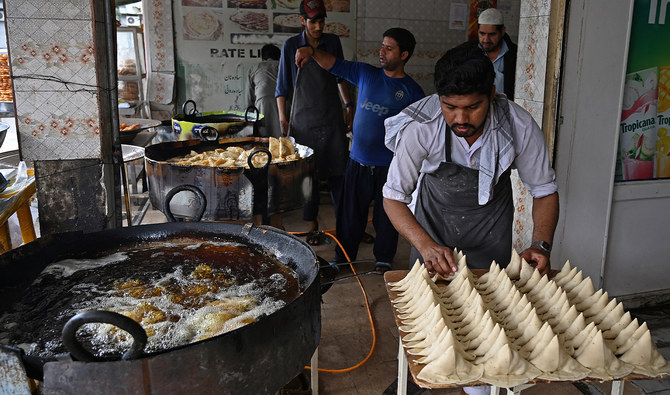ISLAMABAD: Over 50% of Pakistan’s population is overweight, the national Transform Pakistan campaign said in a press release on World Obesity Day being observed internationally on Monday.
World Obesity Day is marked internationally each year on Mar. 4 to raise awareness and advocate for practical solutions in addressing the global obesity crisis. It is organized by the non-profit World Obesity Federation, affiliated with the World Health Organization, and a collaborating body on the Lancet Commission on Obesity. The Federation says it aims to “lead and drive global efforts to reduce, prevent and treat obesity.”
The Transform Pakistan campaign includes the Ministry of National Health Services Regulations and Coordination, Pakistan Youth Change Advocates (PYCA), Center for Peace and Development Initiative (CPDI), and Global Health Advocacy Incubator (GHAI), among others.
Since last year, the Transform campaign has been advocating for the regulation of industrial trans fats (iTFA) in Pakistan, which are created by adding hydrogen to oil. They have no known health benefits and are a major contributor to cardiovascular disease and stroke worldwide, estimated to cause around 540,000 deaths every year.
“58.1% of Pakistanis are classified as overweight, and 43.9% fall into the category of obesity,” Afshar Iqbal, Director of Communications and Advocacy at PYCA, was quoted as saying by the state-run APP news agency. “The estimated annual cost of managing obesity in Pakistan was a staggering Rs428 billion in 2015.”
“There is a strong connection between rising obesity rates and the prevalence of industrially produced Trans-Fatty Acids (iTFAs) in Pakistani dietary sources,” said Dr. Saba Amjad, the CEO of Heartfile, a health focused non-profit.
Munawar Hussain, the in-country coordinator of the Global Health Advocacy Incubator, said industrial trans fats were linked to a range of health issues, including obesity, cardiovascular diseases, and other metabolic disorders.
Experts have called for a “government-mandated regulatory framework” among important steps to reduce the rising tide of obesity and related diseases in Pakistan.
“Such a framework should ensure that the prevalence of iTFAs in all food items is limited to two percent or less of their total fat content,” said Mukhtar Ahmed, the Executive Director of the Center for Peace and Development Initiative (CPDI).
Pakistan’s ministry of health, a patron of the Transform Pakistan campaign, said it was actively engaged with various stakeholders, including the Pakistan Standards and Quality Control Authority (PSQCA), to ensure that a government-led mandatory standard was “soon put into place.”
“In 2023, Pakistan was successfully able to regulate iTFA content in several dietary sources including cooking oils, Vanaspati ghee, bakery shortenings and bakery wares,” Dr. Khawaja Masuood Ahmed, the ministry of health’s national coordinator for nutrition, said.
“We are, however, aware that many notable food items such as ultra-processed items, dairy products such as chocolates and ice-creams and street food still remain outside the ambit of this regulation. The ministry of health is committed to ensuring that all food items across Pakistan soon come under one unified regulation to limit the prevalence of iTFAs in our dietary sources.”
















